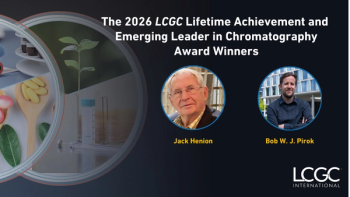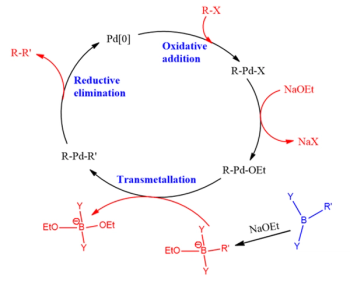
Fabrice Gritti Receives 2022 EAS Award for Outstanding Achievements in Separation Science
Fabrice Gritti, a principal research scientist at Waters Corporation, is the winner of the 2022 Eastern Analytical Symposium (EAS) Award for Outstanding Achievements in Separation Science.
Fabrice Gritti, a principal research scientist at Waters Corporation, is the winner of the 2022 Eastern Analytical Symposium (EAS) Award for Outstanding Achievements in Separation Science. He will receive the award on Tuesday, November 15 in an award session at EAS in Plainsboro, New Jersey.
Gritti earned his PhD in Chemistry and Physics of Condensed Matter from the University of Bordeaux, in France, in 2001. The next year, he came to the United States for a post-doctoral visit to Prof. Georges Guiochon’s research group at the University of Knoxville, in Tennessee. In 2014, Gritti joined Waters Corporation, where, in 2019, he became a principal consulting scientist.
Gritti’s research interests focus on liquid and solid adsorption thermodynamics and mass transfer in heterogeneous media for characterization and design optimization of new liquid chromatography columns and instrument technologies. Protocols developed by Gritti have helped refine the models of adsorption isotherms used in preparative chromatography for the prediction of the band profiles of neutral and ionizable compounds. They also helped in the development of the detailed theory of band broadening along modern analytical columns in close relationship with the observations made in linear chromatography and have reshaped column and instrument designs to maximize performance and sensitivity in the field of separation science by liquid and supercritical fluid chromatography.
Gritti has been invited to give 30 seminars, workshops, or tutorials on general chromatographic sciences at universities, discussion groups, or at international meetings. He has given more than 90 invited keynote lectures at international symposia and published more than 300 peer-reviewed scientific papers. He was the recipient of the 2013 Chromatographic Society Jubilee Medal, and received the 2019 JFK Huber Lecture Award, presented by the Austrian Society of Analytical Chemistry, for his contributions to the development of chromatographic science.
Each year, the Eastern Analytical Symposium honors analytical chemists who have distinguished career achievements. The recipients of these awards advanced these fields by superior work in developing theory, techniques, or instrumentation.
Newsletter
Join the global community of analytical scientists who trust LCGC for insights on the latest techniques, trends, and expert solutions in chromatography.




